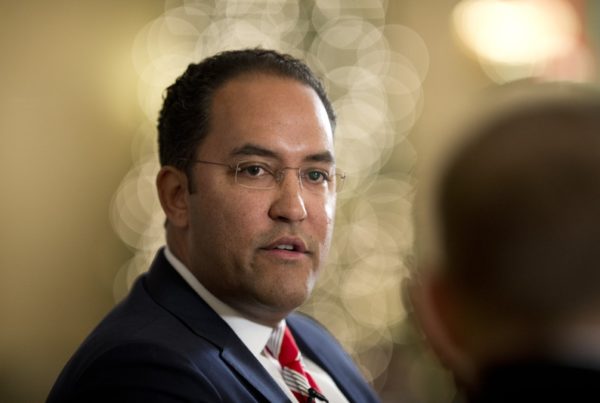“Dead on arrival” is how Texas senior Senator,Republican John Cornyn characterized the formal budget plan unveiled by President Trump. It puts 66 programs on the chopping block – a 31 percent cut to the Environmental Protection Agency, a 30 percent cut for the State Department and 20 percent axed from the Department of Agriculture.
When it comes to cuts in domestic spending, a huge portion comes out of Medicaid: $839 billion plus pulling the plug on money to Planned Parenthood. The plan also includes $1.6 billion for that border wall you may have heard of and a new $19 billion in spending for paid family leave.
Democrats are, as expected, livid. But some of them say their outrage transcends mere partisanship. U.S. Rep. Sheila Jackson Lee is a Democrat from the Houston area and member of the House Budget Committee.
“Frankly, it does not reflect the values of this nation, the values of Texas,” Jackson Lee says. “It guts opportunities for working families.”
Jackson Lee says she does support the president’s plan for increased spending on infrastructure but says it’s not enough to make up for what she dislikes in the budget as a whole.
“We’ll take the infrastructure rebuild and formulate it in a new effort to put forward a road map of opportunity for working Americans,” Jackson Lee says. “But this budget that supports the deportation task force, that has Americans paying for the wall – which the promise was that someone else would pay for it, we cannot support.”
Congresswoman Lee says she believes the budget is a “betrayal of the people who voted for the Republicans and President Trump.”
For some context on presidential budgets, Texas Standard spoke to University of Maryland School of Public Policy Professor and Senior Associate Dean Philip Joyce.
“This goes much farther than what similar conservative or Republican budget proposals have done in the past,” Joyce says. “I mean this would essentially cut domestic discretionary spending in half as a percentage of GDP over ten years. That is not something that, for example, the Bush administration did. In fact, domestic discretionary spending actually increased during the Bush Administration as a percentage of GDP. So this is not sort of a return to Bush-era polices. This is really the Republican, conservative approach to budgeting on steroids I would say.”
Joyce says all presidential budgets are political statements and congressmen and women are more likely to take seriously a budget proposed by a president from their own party.
“But, having said that, the changes in this budget are so huge that these programs that they are proposing to cut affect real people who live in real states and localities and congressional districts and that’s why I’m skeptical that the cuts in particular will become law,” Joyce says.
Texas Standard planned to speak with Jodey Arrington, a Republican member of the House Budget Committee. We were unable to do so, because of a scheduling conflict. We hope to have him on the program soon.














